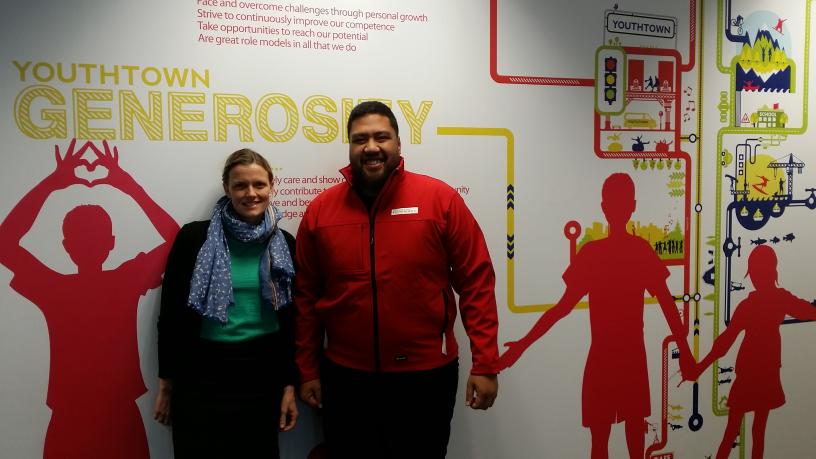Q&A with Jennifer Cottrell – 2016 Churchill Fellow

On World Heart Day, recently returned Churchill Fellow Jennifer Cottrell speaks to RHD Action about what she would like to see happen in RHD control in Australia.
What inspired you to undertake a Churchill fellowship?
In 2017, Indigenous Australians unfairly bear the majority of the burden of RHD in this country. Efforts have been in place for over a decade to address this issue, yet we’re still seeing very high rates of initial rheumatic fever. I believe that we need to broaden our approach to RHD prevention and include elements of primary prevention: managing sore throats and skins sores appropriately, looking at the root causes of rheumatic fever and therefore advocating for improvements in housing, access to health care, education and of course reducing poverty and disadvantage. We also need to start engaging with people who are living with the disease in policy and program directions, as well as support them through their journey. I wanted to explore what some other countries are doing to with respect to these issues.
Where did you go to on your travels?
I spent time in South Africa, Kenya and New Zealand. These countries have either been looking at a variety of approaches to control RHD, or have developed programs that involve and support people living with RHD. New Zealand in particular made an incredible commitment with funding of $65 million to address rheumatic fever. I wanted to see how this had changed the landscape of RHD there. The staff I met with in each country were dedicated, passionate and inspiring. It was an incredible opportunity and I hope I can do them justice.
20170822_093422.jpg

20170815_134150.jpg

What have you learnt?
My experiences have confirmed my belief that we do need to broaden our approach and bring elements of primordial and primary prevention into the RHD space in Australia, alongside our current focus on secondary prophylaxis.
I have seen how government commitment for RHD is crucial, and how a lack of government commitment can be devastating. When there is a mandate for agencies to have a role in preventing RHD, and health conditions with similar causal factors, collaboration between health, housing and education is very successful.
The people living with rheumatic heart disease who I met want to learn about their disease, want to share this information with others to prevent future cases, and want to know there are others going through the same thing. We need to take this to our communities and get their opinions and advice of course but I believe sharing experiences is universally appreciated. Further to that, I saw that peer to peer education can have a big impact – children and young people listen to each other.
I also had a moment of feeling quite ashamed when I was in Kenya and heard about their health systems. Australia is a rich first world country with enormous resources at our disposal and an incredibly advanced health system; yet we continue to fail one of our most disadvantaged populations, the very first people who lived in this amazing country.
20170621_140742.jpg

Can you pick one highlight?
RHD is a unique condition so I wanted to visit RHD specific support groups that are helping families manage the complexities of a diagnosis. Meeting a group of children with RHD and their parents who were part of a support group was definitely a highlight. It was especially touching to hear one of the parents explain how important it has been for her to have other parents who are going through the same thing to talk to.
What will you take back to your work?
Locally I want to meet with our Aboriginal communities and seek their opinions on what I’ve learnt. I’d like to provide more opportunities for patients to meet each other and share stories and potentially set up systems so people living with rheumatic heart disease can have a say in program direction and be part of the education.
I would like to increase the confidence of doctors and nurses to manage sore throats in high risk children and to work with primary health care and communities around reducing the prevalence of skin sores.
At a national level, we need health, housing, education and support services to all committed to ending the disparity in RHD faced by Indigenous people and to work with communities to achieve this. A commitment to a cross-sectorial approach would address RHD as well as a number of other important health conditions, and ultimately it would contribute to closing the gap, something that Australia should make an absolute priority.
For further information:
Jennifer Cottrell | Sir William Kilpatrick Churchill Fellowship 2016 Recipient





